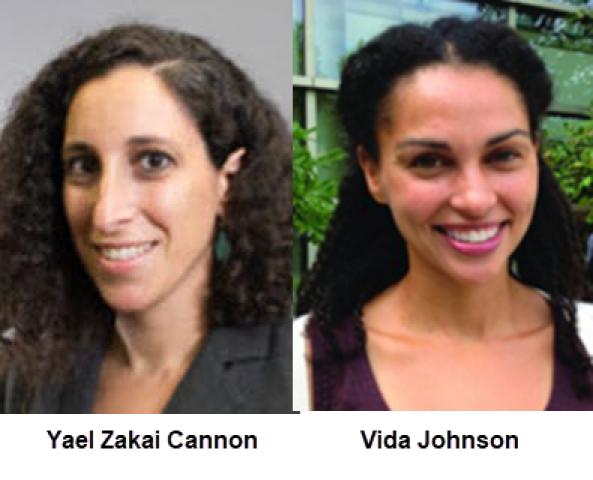Abstract
Excerpted From: Yael Zakai Cannon and Vida Johnson, Advancing Racial Justice Through Civil and Criminal Academic Medical-Legal Partnerships, 30 Clinical Law Review 29 (Fall, 2023) (203 Footnotes) (Full Document)
 In Washington, D.C., life expectancy in the city's predominantly white Ward 3 is 87 years. Less than fifteen miles south and east, in Ward 8, which is majority Black, life expectancy is only 72 years, a full fifteen years shorter. Other racial health disparities abound in D.C., with higher rates of asthma, cancer, maternal mortality, and other health conditions among Black Washingtonians.
In Washington, D.C., life expectancy in the city's predominantly white Ward 3 is 87 years. Less than fifteen miles south and east, in Ward 8, which is majority Black, life expectancy is only 72 years, a full fifteen years shorter. Other racial health disparities abound in D.C., with higher rates of asthma, cancer, maternal mortality, and other health conditions among Black Washingtonians.
The disparities experienced by Washingtonians behind bars are compounded by additional environmental and structural threats to their health. For every year in prison, life expectancy decreases by two years. With Black people about five times more likely to be sentenced to prison time than their white counterparts, there can be no justice without health. Health justice is racial justice.
Health inequities, like legal ones, are deeply connected to social, structural, economic and political determinants of health. Research shows that as much as 80% of health is not driven by biology or medical care, but by the “social determinants of health,” which are the conditions in which people live, work, learn, eat, and age. These determinants of health are not just social, they are structural and political, shaped by laws and policies deeply rooted in structural racism. Racism itself harms health, as do destructive conditions such as unsafe housing and incarceration.
As a movement and scholarly framework, health justice requires the leveraging of law and policy to dismantle subordination as a root cause of health inequities. Building on a vision of health equity in which all people have a fair and equal opportunity to achieve health, the term “justice” centers the importance of law in facilitating such equity. For people to achieve health and well-being, law must be used to ensure access to safe and affordable housing, healthy neighborhoods free of environmental hazards, housing and food security, and freedom from police violence, surveillance, and incarceration. Ultimately, health justice should engage the law and lawyers, as well as their interdisciplinary partners, in building the power of individuals and communities affected by health inequities “to create and sustain conditions that support health and justice.”
Medical-legal partnerships (MLPs) advance health justice by integrating lawyers onto healthcare teams to address legal needs that harm health and to advance policy change to promote health equity. Most MLPs, including academic MLPs situated in universities, focus on civil justice issues that impact health, such as income, housing, utilities, education, employment, immigration, and family law. But criminal injustice also contributes to health injustice. The MLP model, and the academic MLP in particular, can be used to advance racial and health justice by addressing the many legal needs and harmful policies that impact the health and well-being of people in the criminal legal system. Academic MLPs are uniquely positioned to advance racial justice by educating the next generation of lawyers and health professionals to understand and address the connections between structural racism, health, criminalization, and incarceration. Health justice crosses civil and criminal legal spheres, and academic MLPs can and should work towards health justice on both fronts.
Building on the experiences of the authors in their respective law school clinics at Georgetown University in Washington, D.C. and the research supporting the critical connections between racial inequities in both legal systems and health, this Article argues that academic medical-legal partnerships (A-MLPs) provide an important vehicle for training future attorneys, physicians, and other health professionals to advance health and racial justice not only through civil legal advocacy, but also through criminal legal advocacy. The Article offers specific approaches that A-MLPs should adopt in order to meaningfully promote racial justice in both the civil and criminal spheres.
[. . .]
The Academic Medical-Legal Partnership model provides an important opportunity to advance racial justice because it reaches attorneys, physicians, and other health professionals at formative stages of their careers. Before they have fully developed professional identities, habits, skills, values, and knowledge, they can learn to identify and critically examine the civil and criminal injustices and connected health inequities that result from structural racism-- and have the tools and experience to address them. They can learn how and why both evictions and incarceration, for example, disproportionately impact Black people and other people of color, to the detriment of their health and well-being, and can learn how to collaborate to prevent and disrupt those individual outcomes, as well as reform the systems that create such disparities.
Both law and health professions students learn to see clients/patients as people, not cases or medical diagnoses, which is equally important for individuals experiencing civil and criminal legal needs. Students learn to think about how various legal needs are intertwined both across systems and with health, social service, and other needs. This type of client-centered and structural thinking in collaborative problem identification, analysis, and advocacy can serve to advance racial justice, as the needs of clients/patients across civil and criminal legal systems both implicate structural determinants of health and health inequities driven by structural racism that require intentionally antiracist approaches. Interprofessional experiential education through both civil and criminal A-MLPs can prepare future lawyers, physicians, and other health professionals to advance racial and health justice throughout their careers.
Yael Zakai Cannon, Associate Professor of Law and Director, Health Justice Alliance Law Clinic, Georgetown University Law Center
Vida Johnson, Associate Professor of Law and Director, Criminal Justice Clinic, Co-Director of E. Barret Prettyman Fellowship Program, Georgetown University Law Center.


